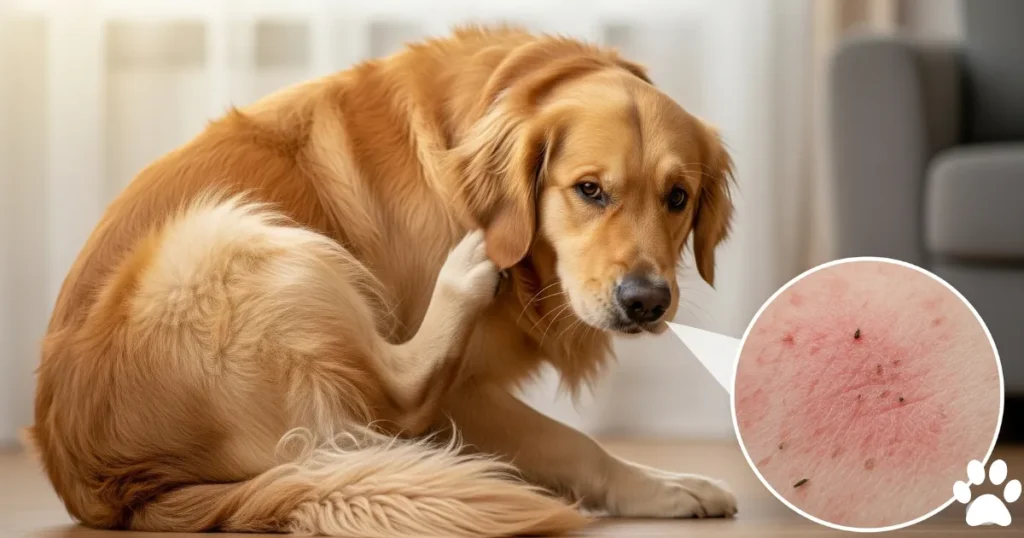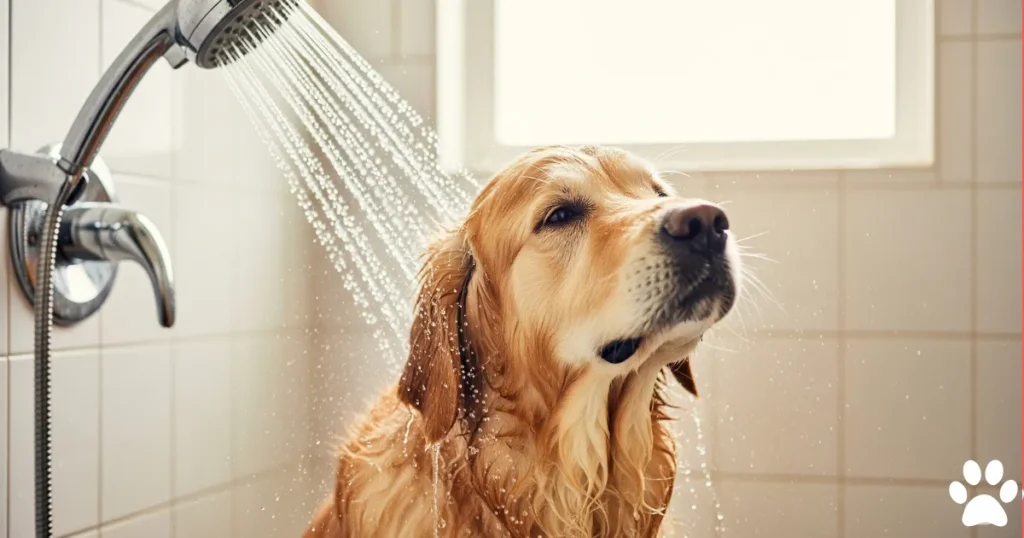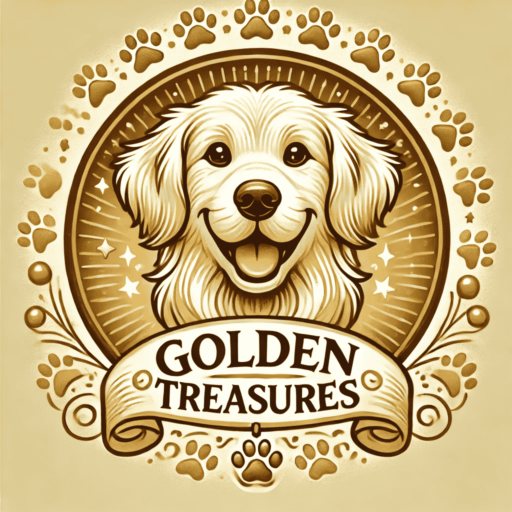Have you ever wondered, “Can dogs have allergies?” The answer is a resounding yes. Just like humans, dogs can experience allergic reactions when their immune system mistakenly identifies everyday substances — like pollen, food ingredients, or flea bites — as a threat. These reactions can cause unpleasant and sometimes serious symptoms, especially in breeds like the Golden Retriever. At the core of this problem is an overreaction of the immune system to harmless allergens. Instead of ignoring these substances, your dog’s immune system attacks them by releasing histamines, which cause itching, swelling, rashes, and even digestive upset. That’s why many pet owners are looking for the best allergy relief for dogs to ease these flare-ups and help their dog feel better. Understanding the distinction among intolerance and allergy is also crucial. Firstly, Allergy involves an immune response which causes in inflammation, itching, and skin issues. On the other hand, food intolerances usually cause digestive upset without an immune reaction. This distinction is important because treatment options vary depending on the cause.
Golden retrievers are especially prone to allergies. Their thick, beautiful double coat can trap pollen, dust mites, or mold spores, increasing the risk of skin reactions. They are also known for their sensitive stomachs, making them prone to allergies and food intolerances. Many dog owners ask, “My dog has allergies, what should I give him?” This is a valid question, and the answer depends on the type of allergy your dog has. Some dogs respond to medicated shampoos, while others may require dietary changes or veterinary-prescribed antihistamines. Understanding the underlying causes of your dog’s allergies is the first step to effective treatment and keep your retrievers Healthy.
Contents
- 1 Common Signs and Symptoms of Allergies in Dogs
- 2 Why Golden Retrievers Are More Prone to Allergies
- 3 Types of Allergies in Dogs and Golden Retrievers
- 4 Allergy Diagnosis: What to Expect from the Vet
- 5 Best Veterinary Treatments for Dog Allergies
- 6 Natural Remedies and Home Remedies
- 7 Daily Preventative Tips to Minimize Allergies
- 8 Are Golden Retrievers Hypoallergenic? Myth Busted
- 9 Final Thoughts: Give Your Golden Retriever the Relief They Deserve
Common Signs and Symptoms of Allergies in Dogs
Allergies in dogs can be sneaky. What may seem like harmless itching or the occasional sneeze could actually be a sign of something more serious. Recognizing the most common signs and symptoms of allergies in dogs is crucial for early treatment—and an important step toward long-term allergy relief for dogs.
Itchy Skin and Excessive Scratching
One of the most noticeable symptoms of allergies in dogs is persistent itching. Your dog may scratch behind his ears, bite his paws, rub his face on furniture, or roll around on the floor. Constant scratching often leads to red, inflamed patches of skin that can become infected if left untreated.
Chronic Ear Infections
If your Golden Retriever is frequently shaking his head, scratching his ears, or has a foul-smelling discharge, he may be suffering from an allergic reaction. Ear infections are especially common in dogs with environmental allergies or food intolerances.
Watery Eyes, Sneezing, and Runny Nose
Like people, dogs can have trouble breathing when exposed to allergens like pollen or dust. Watch for frequent sneezing, red eyes, or a runny nose — these can all be signs of allergies.
Gastrointestinal Issues
Allergies in dogs don’t just affect the skin or sinuses. Some dogs experience vomiting, diarrhea, gas, or bloating, especially if food is the culprit. Golden Retrievers, known for their sensitive stomachs, may be more likely than other breeds to show signs of gastrointestinal issues.
Behavior Changes
If your dog seems unusually tired, irritable, or restless, it may not just be a bad day. Allergies can cause physical discomfort that affects mood, sleep, and appetite.
Why Golden Retrievers Are More Prone to Allergies
Golden Retrievers are loved for their loyalty, intelligence, and gentle nature. However, anyone who has ever owned one knows that they are also one of the most allergenic dog breeds. Allergies for dogs like Golden Retrievers, whether they are related to food, pollen, or fleas, are a common problem for pet owners.
Genetic Susceptibility
One of the main reasons Golden Retrievers are more susceptible to allergies is genetics. They are prone to autoimmune diseases and inflammatory skin conditions. If a puppy’s parents had allergies, the puppy is much more likely to develop them.
Thick Double Coat Traps Allergens
Golden Retrievers have a beautiful, thick double coat that sheds year-round. Not only does it protect them from the cold, but it also traps environmental allergens like pollen, dust, mold spores, and dander. This can lead to increased irritation, especially during allergy season.
Sensitive Skin and Gut
Golden Retrievers often have sensitive skin and a sensitive digestive system. This makes them more sensitive to ingredients like chicken, wheat, soy, or dairy. Therefore, they often benefit from trial foods or special diets designed to help allergy sufferers.
Outdoor Life
Golden Retrievers love to be active outdoors, whether it’s frolicking in the grass, swimming, or playing in the woods. While this is good for exercise and mental stimulation, it increases their exposure to allergens like grass pollen, dust mites, and insect bites.
Types of Allergies in Dogs and Golden Retrievers
When treating allergies in dogs, it’s important to understand that not all allergies are the same. Golden Retrievers, like other breeds, can suffer from a variety of allergies — each with its own causes, symptoms, and treatment plans. Knowing your dog’s specific allergy type is essential for long-term allergy relief for dogs.
Food Allergies
When dog’s immune system reacts negatively to certain food ingredients in its regular diet, it causes Food allergies in them. Dairy, chicken, wheat, beef, corn, and soy are common triggers. Symptoms can include itchy skin, ear infections, digestive issues (such as diarrhea or vomiting), and poor coat quality. Golden Retrievers are especially susceptible to food allergies and often require a special elimination diet to isolate the allergen.

Environmental Allergies (Atopic Dermatitis)
Triggered by allergens in your dog’s environment, such as: These allergies can be caused by allergens like pollen, grass, mold, dust mites, or trees. Whether seasonal or year-round, these allergies often manifest through chronic skin irritation, licking, or sneezing. Golden Retrievers’ thick coats trap these allergens, making them more susceptible.

Flea Allergy Dermatitis (FAD)
Flea allergy caused by flea saliva after bites. Dogs that are susceptible to flea saliva may experience a severe allergic reaction after just one flea bite. Extreme itching, redness, peeling, and hair loss are the outcomes. For Golden Retrievers with already sensitive skin, FAD can be especially unpleasant and uncomfortable.

Contact Allergies
These allergies transpire when irritants like cleaning supplies, shampoos, clothing, or certain plants come into direct touch with your dog’s skin. Redness, rash, or swelling on the paws, chest, or abdomen are common symptoms. Each type of allergy requires individual treatment, whether that means changing the diet, adjusting the environment, or taking medication.
Allergy Diagnosis: What to Expect from the Vet
If your Golden Retriever is itching, sneezing, or showing signs of discomfort, it may be time to see your veterinarian. Diagnosing allergies for dogs isn’t always quick, but it’s the most important step toward long-term allergy relief.
Comprehensive Physical Exam
Your veterinarian will start with a comprehensive physical exam: He’ll look at your dog’s skin, coat, ears, paws, and belly for signs of irritation, rash, or infection. He’ll ask questions about diet, environment, lifestyle, and the onset of symptoms.
Rule Out Other Conditions
Many skin or digestive problems can mimic allergy symptoms. Before confirming an allergy, your veterinarian may rule out parasites (such as fleas or ticks), bacterial or fungal infections, and other underlying conditions that could be causing itching or digestive issues.
Allergy Testing Methods
If an allergy is suspected, your vet may recommend the following:
Intradermal testing:
A small amount of allergen is injected under your dog’s skin to determine a reaction. This is considered the most reliable test for environmental allergies.
Blood tests (RAST or ELISA):
These test your dog’s antibody response to specific allergens and are useful for dogs that cannot be skin tested.
Food Elimination Testing
If a food allergy is suspected, your vet may recommend an elimination diet. This involves feeding your dog a reduced-ingredient or hydrolyzed protein diet for 8 to 12 weeks, then gradually reintroducing it to identify the cause. A proper diagnosis will help you avoid trial and error and begin effective treatment immediately.
Best Veterinary Treatments for Dog Allergies
Once your dog has been properly diagnosed, your veterinarian will recommend a treatment plan tailored to the specific type of allergy. Whether your Golden Retriever is suffering from a food allergy, an environmental irritation, or flea bites, there are several proven dog allergy treatment options that provide fast and long-term allergy relief for dogs.
Antihistamines
These are often the first line of defense against mild allergic reactions. They work by blocking histamine, a chemical responsible for itching and inflammation. Regular, veterinarian-approved antihistamines can be effective, but not all dogs react to them the same way. It may take some trial and error to find the right treatment for your dog.
Corticosteroids (short-term use)
For moderate to severe allergies in dogs, steroids such as prednisone may be prescribed to quickly relieve inflammation and itching. Although very effective, they are usually only used short-term due to possible side effects such as weight gain or immunosuppression.
Immunotherapy (Allergy Shots or Drops)
If your dog is diagnosed with environmental allergies through testing, your veterinarian may recommend immunotherapy. This treatment involves exposing your dog to small, controlled amounts of the allergen to build up tolerance over time. Only this treatment addresses the cause of the allergy, not just the symptoms.
Medicated Shampoos and Topicals
For skin allergies, your veterinarian may prescribe medicated shampoos or creams to reduce inflammation, reduce bacteria, and relieve itching. These are especially helpful for Golden Retrievers with environmental or contact allergies.
Antibiotics or Antifungals
Sometimes, allergies can lead to secondary skin infections. In these cases, veterinarians may prescribe antibiotics or antifungals in addition to other treatments. The best approach to treating your dog’s condition is often a combination of these treatments and home care.

Natural Remedies and Home Remedies
In many cases, veterinary treatment is necessary, but there are also safe and effective natural ways to allergy relief for dogs at home. These remedies are especially useful for treating mild symptoms, reducing flare-ups, or as a complement to prescription medications, especially for breeds like Golden Retrievers that are very prone to allergies for dogs.
Oatmeal Baths and Hypoallergenic Shampoos
Oatmeal has soothing properties and can relieve itchy, inflamed skin. A warm oatmeal bath can soothe irritation and form a protective barrier on the skin. Using Hypoallergenic, fragrance-free, and veterinarian-recommended shampoos is also important, especially for Golden Retrievers with sensitive skin.
Omega-3 Fatty Acids and Fish Oil Supplements
Oatmeal has been shown to have anti-inflammatory properties and promote healthy skin. Omega-3 fatty acids can significantly reduce itching and scratching over time. For dogs they are available in chewable, capsule, or liquid form. Many dog owners report significant improvements in coat condition and allergy symptoms after regular use.
Coconut Oil and Aloe Vera Gel
Coconut oil, applied topically, can soothe dry patches, minor rashes, and irritation. It also has antibacterial and antifungal properties. Aloevera gel (only the pure variety suitable for dogs) can cool and heal irritated skin.
Probiotics and Digestive Enzymes
The immune system of your Golden Retrievers depends on their gut health. Probiotics help balance gut flora and may reduce food allergies. Digestive enzymes can also improve digestion and reduce sensitivities to certain ingredients.
Try a Home Elimination Trial
If you suspect food is the trigger and a veterinarian-prescribed elimination diet is not available, try a simple home-cooked diet containing one protein and one carbohydrate. Introduce new ingredients slowly and gradually. This should be done carefully to avoid nutritional imbalances. Natural remedies work best when used consistently and in conjunction with your veterinarian’s recommendations.
Daily Preventative Tips to Minimize Allergies
Preventing allergic reactions in your golden retriever is as important as treating them. By making simple changes to your dog’s daily routine, you can greatly reduce exposure to common triggers and provide long-term allergy relief for dogs, especially sensitive breeds like Golden Retrievers.
Regular Bathing and Grooming
Golden Retrievers have thick coats that trap allergens like pollen, dust, and mold. Regular brushing (at least 2-3 times a week) and bathing with a hypoallergenic shampoo will help remove these particles before they can irritate your dog’s skin. Focus on frequently touched areas like the paws, belly, and ears.

Regularly Clean Living Areas
Allergens aren’t just found outdoors, they can also accumulate indoors. Vacuum carpets, rugs, and furniture weekly to reduce indoor allergens. Wash your dog’s bed regularly with hot water and use unscented, pet-safe cleaners to prevent allergies caused by chemical residue.

Clean Up After Outdoor Play
After a walk or play session, wipe your dog’s paws, legs, and belly with a damp cloth or pet-safe wipes. This will reduce the amount of pollen or grass your dog brings into the house.

Avoid Common Triggers
If you know what your dog is allergic to, such as chicken, beef, or certain plants, keep these allergens out of reach. Avoid outdoor run during pollen season or switch to a hypoallergenic dog food as recommended by your veterinarian.
Use an Air Purifier and HEPA Filter
Improve indoor air quality by using HEPA filters in your air conditioner and a high-quality air purifier. This helps reduce airborne allergens, which could potentially harm your golden retriever’s immune system. Prevention is one of the most effective (and underrated) ways to relieve dog allergies.
Are Golden Retrievers Hypoallergenic? Myth Busted
Golden Retrievers are one of the most popular dog breeds in the world, but if you’re prone to allergies, you may be wondering: Are Golden Retrievers Hypoallergenic? Unfortunately, the short answer is no.
Golden Retrievers are not considered hypoallergenic. In fact, they are a common trigger for pet hair allergies due to their thick double coat, excessive shedding, and the proteins in their saliva, dander, and urine. These proteins, not the hair itself, are the real culprits and can easily become airborne or stick to clothing, carpet, and furniture. It’s important to note that hypoallergenic dogs are not completely allergen-free either—they just produce fewer allergens. Because Golden Retrievers shed a lot and love to cuddle, they tend to produce more allergens than low-shedding breeds.
Ironically, not only can golden retrievers cause allergies in people, but they can also cause allergies themselves. These dogs are genetically more prone to skin conditions, food allergies, and environmental allergies. If you’re wondering, “My dog has allergies what can I give him” the answer is yes, and many golden retrievers do. Fortunately, as we’ve seen, there are many options for allergy relief in dogs, including veterinary treatment, home care, and preventative strategies.
Final Thoughts: Give Your Golden Retriever the Relief They Deserve
Allergies can affect your Golden Retriever’s well-being, health, and overall well-being. But with the right knowledge and consistent care, your dog doesn’t have to suffer. Whether your pup is struggling with food allergies, itchy skin, or seasonal sneezing, there are plenty of ways to help allergy relief for dogs in the long run. From recognizing early warning signs to understanding the types of allergies for dogs, the first step is always education. Golden Retrievers, with their affectionate nature and outdoor lifestyle, are more prone to allergic reactions than many other breeds. That’s why preventative care, such as allergy testing, diet changes, natural home remedies, and regular veterinary checkups, is so important.
Remember: Every dog is an individual. What works for one Golden Retriever may not work for another. Be patient, be considerate, and work closely with your veterinarian to create a personalized allergy treatment plan that meets your dog’s specific needs. Finally, don’t underestimate the impact of small daily changes—hygiene routines, cleanliness, and an allergy-friendly environment can make a big difference. With your love and care, your Golden Retriever can continue to wag his paws, shake his paws, and roam in the sun the way he deserves. Want to share your experiences or tips for managing dog allergies? Leave a comment below or ask a question—we’re all about giving our dogs the best life possible!
Dr. Nabeel A.
Hi, I’m Dr. Nabeel Akram – a farm management professional by trade and a passionate Golden Retriever enthusiast at heart. With years of experience in animal science and livestock care, I’ve built a career around understanding animals—how they live, thrive, and bring value to our lives. This blog is a personal project born from that same passion, focusing on one of the most loyal and lovable breeds out there: the Golden Retriever. Whether I’m managing farm operations or sharing insights on canine health, behavior, and care, it all ties back to one core belief—animals deserve thoughtful, informed, and compassionate attention. Welcome to a space where professional expertise meets genuine love for dogs.
Facebook |


Links will be automatically removed from comments.